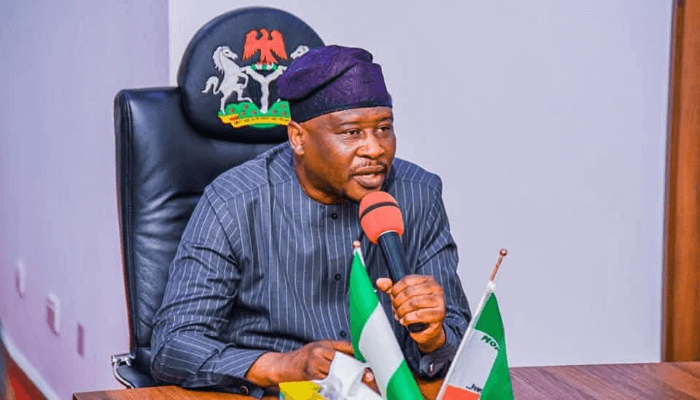Japan, IOM, Adamawa partner to boost healthcare, commission nine new facilities
The International Organisation for Migration (IOM), in partnership with the Adamawa State government, has commissioned nine healthcare facilities funded by the Government of Japan through the Japan International Cooperation Agency (JICA), marking a major step toward strengthening healthcare delivery and promoting sustainable development across eight local government areas of the state.
The initiative, part of IOM’s project titled “Accelerating Access to Basic Services for Internally Displaced Persons, Returnees, and Host Communities in the North-East Region,” aims to rebuild resilient communities, enhance access to essential services, and support long-term recovery in areas affected by conflict, displacement, and environmental challenges.
Speaking at the commissioning, Governor Ahmadu Umaru Fintiri, represented by Deputy Governor Kaletapwa Farauta, commended the Government and people of Japan, as well as IOM, for their continued partnership in driving transformative development initiatives across the state.
“Health remains a top priority of this administration. We are implementing projects across 68 primary healthcare facilities in all 21 local government areas under our guiding principle of leaving no one behind,” Fintiri said. “This initiative aligns with our broader agenda to phase out IDP camps, foster durable solutions, and strengthen the humanitarian-development-peace nexus.”
Governor Fintiri acknowledged the impact of climate change, flooding, and communal crises on the state’s healthcare system, adding that these challenges have reinforced the government’s resolve to expand access to quality healthcare and improve community well-being.
He urged residents of Gyawana community to protect and make effective use of the new facility, stressing the importance of ensuring no woman loses her life during childbirth.
In his remarks, Dimanche Sharon, IOM Chief of Mission in Nigeria, praised the strong collaboration between the Adamawa government, local communities, and international partners.
“These facilities are more than buildings — they are symbols of hope and healing,” Sharon said. “Through a $4.48 million grant from the Government of Japan, we have not only constructed essential infrastructure but also laid the foundation for inclusive health systems that serve displaced persons, returnees, and host communities alike.”
She disclosed that the newly built and rehabilitated facilities are fully equipped and powered by 24-hour solar systems, with solar-powered water supply infrastructure to ensure uninterrupted access to clean water.
According to Sharon, the centres will provide comprehensive services, including maternal and child healthcare, mental health and psychosocial support, care for survivors of gender-based violence, and specialised assistance for persons with disabilities and unaccompanied children.
Read also: Adamawa records 8,850 new HIV infections in four years – Agency
She added that ten additional health workers have been deployed on a temporary basis pending full integration into the state’s health workforce, while 219 frontline health workers have received training in digital health technologies and service delivery.
Beyond infrastructure, the project also supports local economies through cash-for-work programmes, entrepreneurship development, and peacebuilding activities. Three additional facilities are currently 70 percent complete.
Also speaking, the Hama Bachama, represented by the District Head of Gyawana, Aguso Bamaiyi, appealed to the government, IOM, and JICA to help tackle hepatitis, which he said has become a major public health threat in the community.
“One out of every four deaths in our community is caused by hepatitis,” Bamaiyi said.
Some beneficiaries, including Rafkatu and Dauda, expressed gratitude to IOM for the intervention, describing it as timely. “Through this support, we have been able to pay our children’s school fees, farm, and feed our families,” they said.

